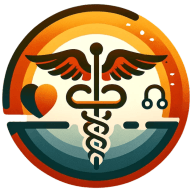How Can Interdepartmental Collaboration Be Improved in Healthcare?
To enhance interdepartmental teamwork in healthcare, a mental health practice Founder highlights the importance of developing collaborative learning environments. Alongside their insight, we've included additional answers providing a spectrum of strategies that foster collaboration. From team-building activities to cutting-edge collaboration software, explore how healthcare leaders boost teamwork for improved outcomes.
- Develop a Collaborative Learning Environment
- Initiate Interprofessional Team-Building
- Adopt Healthcare Collaboration Software
- Standardize Communication Protocols
- Organize Multidisciplinary Clinical Rounds
- Establish Shared Goals with Incentives
Develop a Collaborative Learning Environment
One initiative is to encourage a cross-departmental approach that develops a Collaborative Learning Environment (CLE). This strategy goes beyond orthodox committee conferences and communication methods. It seeks to bring together healthcare staff from various units so that they can exchange knowledge, deliberate on intricate cases, and get expert input in a timely manner.
In the CLE, hierarchical boundaries are blurred, thereby allowing equal contributions by all team members and learning from each other. It’s not just about information sharing but about building a culture where learning is part of the daily routine. Regular in-service interprofessional education sessions, integrated with case studies or patient outcome-oriented ones, can help team members have better insights about one another’s roles as well as their impacts on patient care.
Additionally, technology can be exploited for this collaborative learning using virtual platforms, for example, or shared digital workspaces; hence, making sure that such interactions are not constrained within physical walls or particular times of the day. By doing this, we can create a lively, responsive learning environment that improves interdepartmental collaboration and brings positive results in patient care and satisfaction among staff members.

Initiate Interprofessional Team-Building
One method to boost interdepartmental collaboration within healthcare settings is to initiate regular interprofessional team-building activities. These activities can create a sense of camaraderie and understanding among different department staff members. Engaging in shared challenges can break down barriers and foster a culture of mutual respect.
Team-building exercises encourage open communication and can help staff members appreciate the diverse skills each department brings to patient care. To see improvements in collaborative efforts, healthcare facilities should consider organizing such activities on a consistent basis and encourage all departments to participate actively.
Adopt Healthcare Collaboration Software
Another effective strategy for enhancing collaboration is the adoption of integrated healthcare collaboration software. This type of software streamlines communication and information sharing between departments, ensuring that everyone has access to up-to-date patient records and treatment plans. The result is a more seamless patient experience, as staff from different departments can coordinate care efficiently.
Moreover, this technology reduces the chances of errors that can occur with manual data transfer. Hence, healthcare organizations should explore and invest in reliable collaboration software that meets their specific needs.
Standardize Communication Protocols
Improving cross-department collaboration can also be accomplished by standardizing communication protocols. Clear guidelines for when and how different departments should communicate can eliminate confusion and reduce delays in patient care. By ensuring everyone speaks the same "language," staff can work together more effectively.
A standardized approach also helps to set expectations and accountability for sharing critical information. Therefore, healthcare institutions should develop and implement comprehensive communication protocols to enhance collaboration.
Organize Multidisciplinary Clinical Rounds
Organizing routine multidisciplinary clinical rounds is a hands-on approach to improving interdepartmental collaboration. Such rounds provide opportunities for different specialists to come together to discuss patient care in real time. This direct interaction can lead to better health outcomes as complex cases benefit from diverse perspectives.
Moreover, it allows team members to learn from each other's expertise in a collaborative environment. To make the most of these clinical exchanges, healthcare institutions should schedule regular multidisciplinary rounds and encourage active participation from all relevant departments.
Establish Shared Goals with Incentives
To foster a collaborative culture in healthcare, establishing shared goals with incentives can be a powerful motivator. When different departments work together towards common objectives, they are more likely to put aside their differences and work as a unified team. Incentives can drive engagement and enthusiasm, encouraging team members to go the extra mile for shared success.
Regularly reviewing these goals and rewarding achievements can sustain the momentum of collaboration. Consequently, healthcare leaders should create and communicate shared goals with aligned incentives to boost interdepartmental teamwork.

